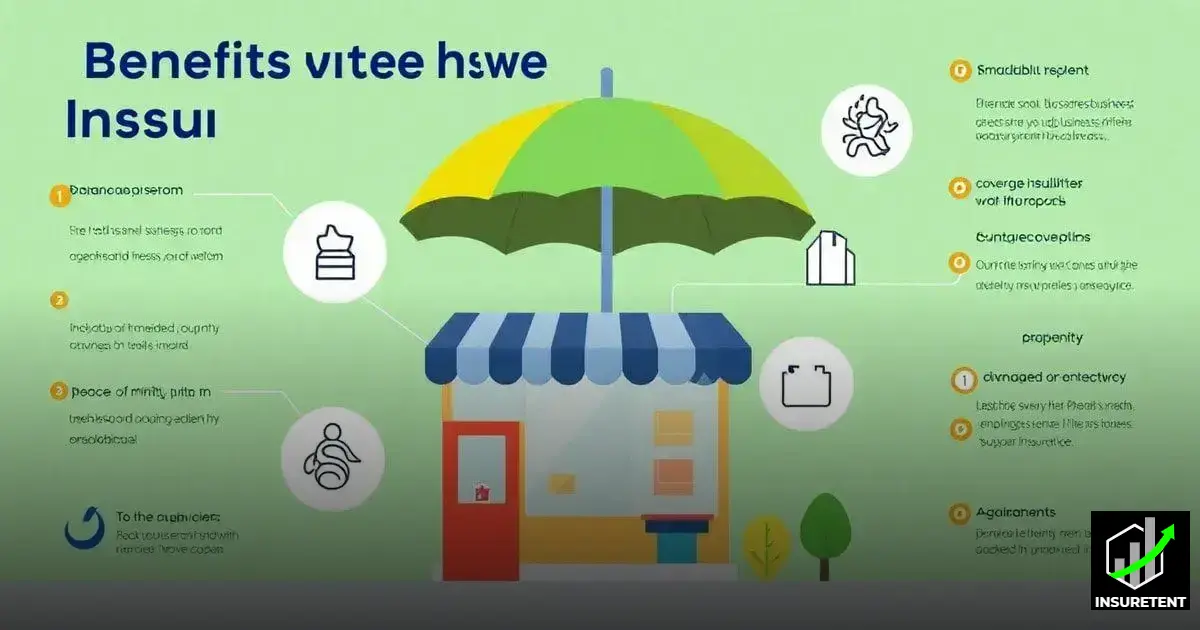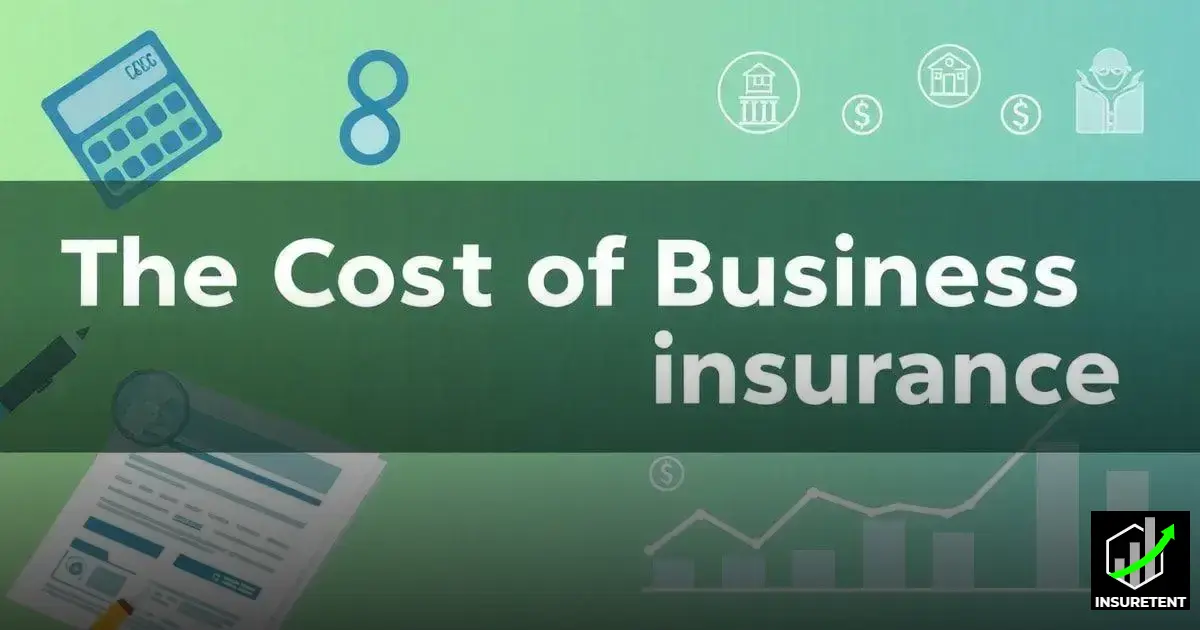Business Insurance is essential for protecting your business from unforeseen challenges. It acts as a safety net, ensuring that your enterprise can recover from unexpected events with minimal disruption.
From small startups to established corporations, having the right coverage safeguards your assets and provides peace of mind. Choosing a policy tailored to your needs is a smart investment in your business’s future.
Understanding the importance and benefits of Business Insurance equips you with the tools to navigate risks effectively and secure long-term success. Keep reading to discover how it can shield your business.
Understanding Business Insurance Basics
Understanding business insurance is essential for any entrepreneur. It serves as a safety net that protects your company from various risks.
Business insurance can cover damages to property, legal claims against your business, and even loss of income due to unforeseen circumstances.
There are several types of business insurance, including general liability insurance, property insurance, and workers’ compensation. Each type addresses specific risks that your business may face. For example, general liability insurance protects against claims of bodily injury or property damage inflicted on others by your business.
Additionally, property insurance covers the physical assets of your business, safeguarding against theft, fire, and natural disasters. It’s important to assess the unique needs of your business and choose policies that provide adequate coverage.
In summary, knowing the basics of business insurance ensures that you are well-prepared to handle potential challenges. By understanding the different types of coverage available, you can make informed decisions to protect your business effectively.
Types of Business Insurance You Need

When starting a business, types of business insurance are crucial to understand. These policies provide important protections that can help your business thrive.
Firstly, general liability insurance is essential for covering claims of injury or damage that occur in your business environment. This type of coverage protects you from financial loss in case of accidents or legal issues.
Next, property insurance safeguards your physical location, inventory, and equipment from threats like fire, theft, or natural disasters. Having this insurance ensures that you can recover quickly from unforeseen events that could otherwise cripple your operations.
Workers’ compensation insurance is another vital policy if you have employees. It provides benefits to workers who get injured on the job, covering medical costs and lost wages. This not only protects your employees but also helps you avoid potential lawsuits.
Lastly, consider business interruption insurance. This policy compensates for lost income during unavoidable business downtimes, allowing you to manage expenses and keep your operations running smoothly.
Understanding these types of business insurance helps you choose the right protection for your business needs.
How to Choose the Right Coverage
Choosing the right coverage for your business insurance is a crucial task. It starts with understanding the specific needs of your business. Begin by evaluating the risks associated with your industry and operations. This will help you determine the type of insurance policies that are essential for safeguarding your assets and mitigating potential risks.
One effective way to choose the right coverage is to consult with an insurance broker. These professionals can guide you through your options and help you find policies that fit your budget and coverage needs.
They can also explain the differences between various types of coverage, such as general liability and professional liability insurance, which is important for protecting against claims of errors or negligence.
Additionally, it’s essential to compare quotes from multiple insurance providers. This ensures you are getting the best rates and terms available. Look for reviews and feedback from other clients as this can give you insights into the reliability and customer service of the provider.
Don’t forget to ask about any exclusions or limitations within the policies. Understanding what is not covered can save you from unexpected surprises later. Overall, taking these steps will help you effectively choose the right coverage for your business insurance, providing you peace of mind and security.
Benefits of Having Business Insurance

Having business insurance offers numerous benefits that protect your company from various risks. Firstly, it provides financial security against unexpected events, like accidents or property damage. This peace of mind allows you to focus on growing your business without the constant worry of potential losses.
Moreover, business insurance can enhance your company’s credibility. Clients and partners often prefer dealing with insured businesses because it shows professionalism and responsibility. This can help you win more contracts and strengthen business relationships.
Additionally, certain types of business insurance are legally required. For example, if you have employees, workers’ compensation insurance is mandatory in many regions. Failing to obtain necessary policies can result in fines and legal issues.
Lastly, business insurance can be tailored to meet your specific needs. You can choose the right coverage for your industry, ensuring that you are protected against the unique risks you face. This flexibility empowers you to make informed choices for your business’s future.
Common Myths About Business Insurance
Misconceptions about business insurance often lead to misunderstandings that can leave companies unprotected. One common myth is that only large businesses need insurance. In truth, businesses of all sizes face risks, and having the right insurance coverage is essential for protecting assets and operations.
Another widespread belief is that business insurance is prohibitively expensive. While costs vary, there are affordable policies available to suit different budgets. Shopping around and comparing options can help businesses find coverage that balances cost and protection.
Some assume that purchasing business insurance eliminates all risks. However, insurance is meant to mitigate risks, not remove them entirely. It’s equally important for businesses to implement safety measures and adopt robust risk management strategies.
Additionally, many think all insurance policies are the same, but there are various types of coverage designed for specific needs. For example, general liability, property insurance, and professional liability each address different risks. Understanding these distinctions ensures businesses select the most appropriate coverage.
Finally, there’s a misconception that once business insurance is purchased, it doesn’t need further attention. Regularly reviewing and updating policies as the business grows or changes is crucial to maintaining adequate protection. Dispelling these myths allows business owners to make informed decisions and safeguard their operations effectively.
The Cost of Business Insurance Explained

The cost of business insurance can vary widely depending on several factors.
First, the size of your business plays a significant role. Larger businesses usually face higher premiums due to the increased risk and potential for larger claims.
Additionally, the industry you operate in can impact costs. For example, construction companies often pay more for insurance than retail businesses due to the higher risk of accidents.
Your business’s claims history is another important factor. If you have a record of frequent claims, insurers may view you as a higher risk, leading to increased premiums. On the other hand, maintaining a good claims history can help lower your insurance costs over time.
The coverage limits you choose also affects the overall cost. Higher coverage limits generally mean higher premiums. It’s important to find a balance between adequate coverage and affordability.
Additionally, some businesses may qualify for discounts based on the safety measures they have in place, such as employee training and workplace improvements.
To get the most accurate estimate, it’s essential to compare quotes from multiple insurers. By assessing various options, you can find the best coverage at a reasonable price.
Understanding these elements can help you plan for the cost of business insurance effectively.
How to File a Business Insurance Claim
Filing a business insurance claim can seem daunting, but following a systematic approach can simplify the process. Start by reviewing your insurance policy to understand what is covered. Knowing your coverage details helps ensure that you are claiming for eligible losses.
Next, identify the cause of the claim. Gather all relevant documentation, such as photographs of damages, incident reports, and witness statements. This information will support your claim and speed up the review process.
Once you have all the necessary documents, contact your insurance provider to report the incident. Do this as soon as possible, as many policies have deadlines for filing claims. Be prepared to provide details about the event, the extent of the damages, and the impact on your business.
Your insurer may assign an adjuster to evaluate your claim. They will assess the damages and may ask for additional information. Be open and cooperative, as this can help achieve a favourable outcome.
After the assessment, the insurance company will determine whether to approve or deny the claim. If approved, they will inform you about the compensation amount. In case of a denial and you believe the decision is unjust, you have the right to appeal the decision.
Understanding how to file a business insurance claim ensures that you are prepared in case of an unexpected event, helping you recover as quickly as possible.
Tips for Lowering Your Business Insurance Premiums

Consider bundling your insurance policies for potential discounts.
Increasing your deductible may lower your premiums, but ensure affordability for potential claims.
Implementing safety measures can help lower your risk profile and possibly qualify you for discounts.
Regularly review your coverage to avoid paying for unnecessary insurance as your business changes.
Avoid small claims to maintain a good claims history, which may lead to lower premiums over time.
The Essential Role of Business Insurance in Securing Your Future
Business insurance is not just a safety net; it is a vital component of sustainable business operations. By understanding the basics, choosing the right coverage, and dispelling common myths, business owners can protect their investments effectively.
The cost of business insurance can be managed through careful planning and comparison of policies. Moreover, knowing how to file a claim can ease the stress in times of need, while implementing tips to lower premiums can support your budget.
Always remember that proper insurance coverage is an investment in your business’s future, allowing you to operate with confidence in an unpredictable world.
Check out our article on Car Insurance to learn about its benefits and how to choose the right coverage for your needs.
